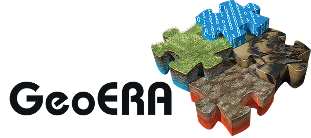This post is part of the GeoConnect³d blog.

Joanna Fajfer is a researcher specialised in geology and environmental issues in the Polish Geological Institute-National Research Institute (PIG-PIB). She graduated with an MSc in Prospecting Geology from the Faculty of Geology of the Silesian University in Katowice; a PhD in technical science in the field of Environmental Engineering from the University of Mining and Metallurgy in Cracow, and a scientific course in Environmental management, legislation and waste from the Ecole des Mines d’Alés in France.
She is a specialist in the field of environmental geology, and uses her experience to combine geological issues with rational management of natural resources. She participates in research projects associated with the environmental impact of human activities – in 2010- 2012, she led the national project concerning a methodology and an inventory of closed and desolated extractive waste facilities posing a negative impact on the environment. Her recent studies deal with the environmental impact of unconventional hydrocarbons exploration with a special concern of waste composition and waste-derived risk. She has also participated in EU-funded projects addressing subsurface management and environmental hazards issues such as: M4ShaleGas, Secure, GeoConnect³d and HIKE. In the GeoConnect³d project, she tries to focus on stakeholders involvement, legal and administrative issues of subsurface management at present and in the future.
Why geology and subsurface management?
Born and still staying in the Upper Silesian Industrial District, since early in her childhood she has experienced the influence of the underground space use by humans, even if with no special awareness of it. The Upper Silesia is dominated by hard coal mining (Upper Silesian Industrial District – located within the Upper Silesian Coal Basin). The ubiquitous mining waste heaps always fascinated little Joanna and gradually were focusing her interests on possible proper management and recovery of these areas for other investments. The idea of her PhD thesis was to determine the possibility of mining waste application for filling underground workings of hard coal mines. Later researches have been related mostly to environmental safety and security of subsurface use. Joanna: “In order to understand the impact of human activity on the environment, one must first understand natural processes that take place on the surface and underground, and only then add the human component to the picture.”.
And after work?
Joanna likes to spend every free moment in the open air, like pretty much every geologist. In winter, she loves her trips to the mountains enjoying winter charms while skiing. However, in the summer she devotes herself to her second passion – gardening. She plants, replants and fertilizes, and in the autumn she observes and tastes the effects of her spring and summer activities in her vegetable garden.

GeoConnect³d results and their future
Joanna works in the GeoConnect³d work package WP5 which concerns the issue of state of the art of subsurface planning and management. She focused on the existing legislation in Europe which concerns the underground activities and took part in reviewing present and past subsurface activities. She believes that, sooner or later, everyone will realise that proper identification of underground structures will allow to determine their future use in the context of conflicts and synergies, and wide access to the knowledge may gather stakeholders of different interests to cooperate in finding best solutions.
